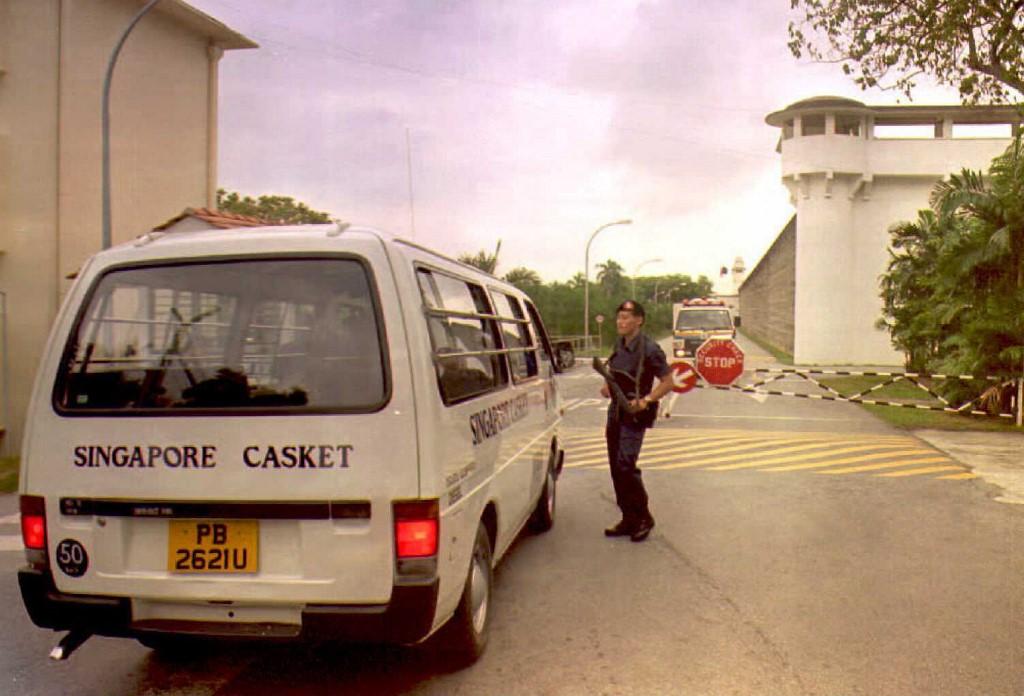Singapore set to hang another Malaysian diagnosed with low IQ
The families of Sabahan Pausi Jefridin and Singaporean Roslan Bakar have been given a seven-day notice of their execution on Feb 16.
Just In
A Malaysian diagnosed with a low IQ is one of two persons sentenced to death for a drug offence in Singapore more than a decade ago to be executed on Feb 16, in a move set to draw attention to the city-state once more after the global outrage sparked by its last attempt to execute a prisoner with similar intellectual disabiilties last year.
The families of Sabahan Pausi Jefridin and Singaporean Roslan Bakar were shocked when they were given notice on Feb 9 of their execution day.
“This is even though Pausi’s family are from Sabah, and have had to rush to make travel arrangements,” said vocal Singaporean anti-death penalty activist Kirsten Han.
Han also said that all tickets under the Singapore-Malaysia Vaccinated Travel Lane have been sold out.
“This is grotesque cruelty,” she added.
The men, who were charged with trafficking 96.07g of diamorphine and 76.37g of methamphetamine in 2008, were convicted in 2010.
They failed in an appeal in 2017 to commute their death sentence to life imprisonment, despite lawyers citing medical reports on their intellectual capabilities which would render their execution illegal under Singapore laws as well as international treaties.
- Nagaenthran having delusions of coming home as new date set in fight to stay alive
- Long letter from Singapore fails to convince billionaire Branson about executing Nagaenthran
- Wisma Putra in frantic but ‘tactful’ appeal for Singapore to spare Nagaenthran’s life
- Nagaenthran’s appeal hearing around the corner as execution looms
- Please save my son: A letter from Nagaenthran’s mother to Singapore president
The judge had dismissed expert findings on Pausi’s IQ level, which said he was suffering from a “retarded development of mind as a result of his exceptionally low and restricted education”.
Leading Singapore clinical psychologist Dr Danny Ng who assessed Pausi also said he had an IQ level of 67, which is below the threshold of 70 for declaring a person as intellectually disabled.
Roslan’s lawyer meanwhile said his client was found by experts to have “limited capacity for judgment and decision-making due to underlying cognitive defects”, according to the 2017 judgment sighted by MalaysiaNow.
But the judge, despite admitting that both men had low scores, maintained their death sentence.
“A low IQ level alone is not evidence of an abnormality of mind,” said judge Choo Han Teck.
“For the purposes of Section 33B(3), the court cannot ignore the functionality of the mind of an accused person in question. In this case, I find that despite a low score, both applicants had displayed competence and comprehension of what they were doing when they carried out their act of trafficking in the drugs,” he said.
Under Section 33B(3) of Singapore’s Misuse of Drugs Act, the death sentence should not be meted out to persons who suffer from retarded development of mind that would impair their mental responsibility for their actions.
Pausi and Roslan’s case is similar to that of Nagaenthran K Dharmalingam, a Malaysian diagnosed with an IQ of 69 who was to have been executed in November last year.
He was granted a stay of execution after a diagnosis of Covid-19 just before the court was due to hear a last-ditch appeal to save his life.
His hearing is believed to have been set for this month.
Nagaenthran’s plight drew public outrage, with pleas for leniency coming from Yang di-Pertuan Agong Sultan Abdullah Sultan Ahmad Shah and Prime Minister Ismail Sabri Yaakob.
It also moved British aviation magnate Richard Branson to pen a letter to the Singapore president pleading for Nagaenthran’s life.
The Singapore government has often cited its tough laws as a deterrent against drug crimes.
But critics have pointed out that many of those convicted are drug mules from poor families, while the drug kingpins who employed them often go unpunished, a view stressed by Branson in his open letter to Singapore President Halimah Yacob.
Subscribe to our newsletter
To be updated with all the latest news and analyses daily.
